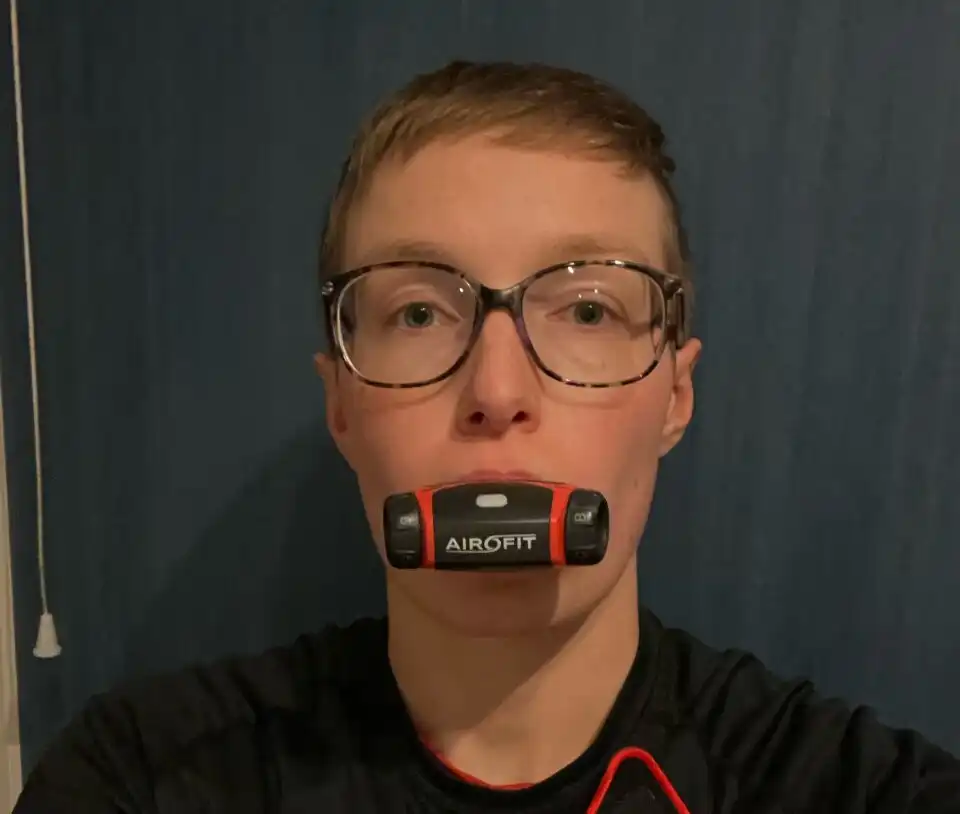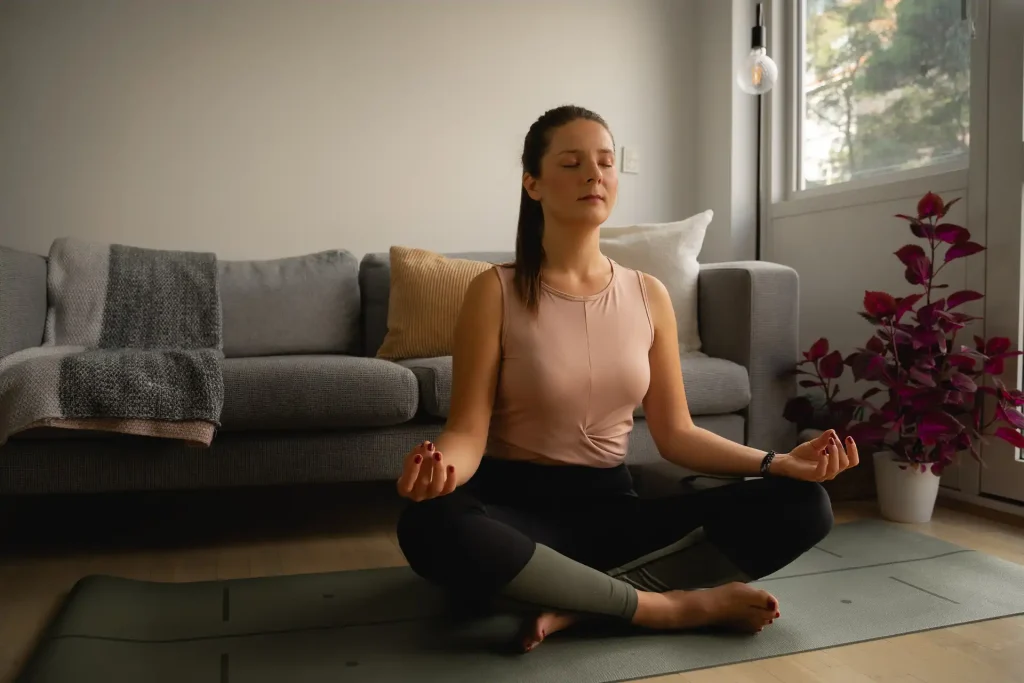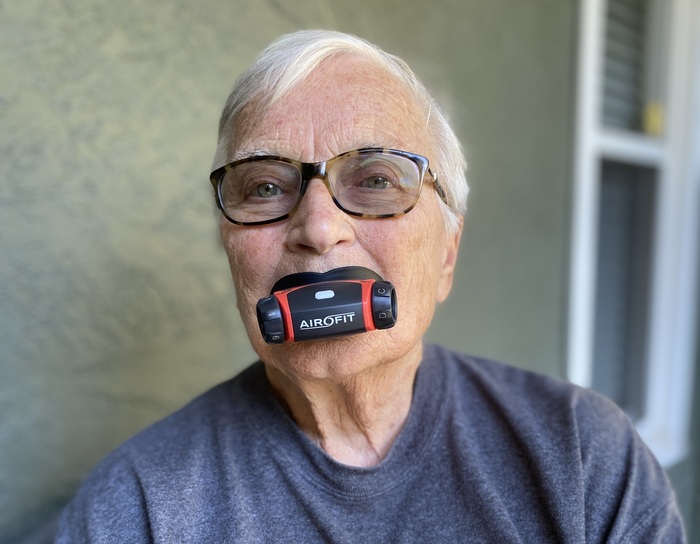Multiple Sclerosis and the benefits of respiratory muscle training

Multiple sclerosis (MS) is one of the most common diseases of the central nervous system (brain and spinal cord). Today more than 2.8 million people around the world have MS. The term multiple sclerosis means ‘many scars’.
The 30th of May is world MS day, and there are events and activities across the globe to raise awareness of the condition, boost the ongoing efforts to develop a cure, as well as support the many people living with MS.
The theme of this year’s event is “connections” and the official website has lots of useful information and resources for anyone keen to find out more or get involved in support and fundraising.
Raising funds and awareness
Here in Denmark, the annual Cykelnerven event is organized by Scleroseforeningen, the Danish Multiple Sclerosis Society. This cycling challenge takes place along the stunning mountain routes of the Tour de France, just weeks before the start of the tour.
We have a number of high-profile Danish participants like tour de France riders, the golden four Olympic rowing medalists, TV personalities, and some other companies supporting this excellent organization.
And we are thrilled to have a member of the Airofit family, our head of sales Jacob Mathiesen, taking part to raise funds.
To find out more about this great event check out the Cykelnerven website (Danish) and Scelroseforeningen, the organization behind it (page in English). MS is an autoimmune disease that, unfortunately, more and more people are diagnosed with around the world. Two thirds of those affected are women in the age range of 20-40.
Symptoms vary widely and can include blurred vision, weak limbs, tingling sensations, unsteadiness, and fatigue. People with MS may experience limitations in muscular strength and endurance – including the respiratory muscles, affecting functional performance and exercise capacity. It can also lead to shallow breathing and anxiety.
Living with MS
At present there is no cure for MS, but management of the disease includes drug treatments to treat acute inflammatory attacks (or relapses), medications that reduce the risk of further inflammatory relapses (disease modifying therapies) and treatments to slow disease progression.
Then there are also therapies that alleviate and improve various symptoms. Successful management of MS also includes adopting a healthy diet, exercise, and rehabilitation. Several studies have shown that respiratory muscle training (RMT) with a device like Airofit can play a significant role in a treatment program. And increasing numbers of therapists and doctors are recommending it as a helpful addition to existing treatment regimens.
Muscle weakness and shortness of breath during activity are common in MS. This can be improved with RMT. Training the breathing muscles, especially in the early stages of the disease, can help to reduce breathing problems developing later on, and improve quality of life.
The strengthening effect on the main breathing muscles – the diaphragm and intercostals – helps to access more available vital lung capacity. This means more air and less effort to breathe.
Just short daily training sessions—just 5-10 minutes a day—can help strengthen these muscles and improve respiratory function. It also helps to reduce stress and anxiety and improve sleep, so important in managing illness as well as promoting better general health and wellness.“
IMT had a beneficial effect on inspiratory muscle strength in patients with MS and is recommended as a complement to ordinary physical training.”
Study: Effect of inspiratory muscle training in patients with multiple sclerosis
Breathing right
In addition to using RMT, there are simple breathing techniques you can do anytime to reduce stress and anxiety.
Belly breathing is easy to do and very relaxing. Try this basic exercise anytime you need to relax or relieve stress.
• Sit or lie flat in a comfortable position.
• Put one hand on your belly just below your ribs and the other hand on your chest.
• Take a deep breath in through your nose, and let your belly push your hand out. Your chest should not move.
• Breathe out through pursed lips as if you were whistling.
• Feel the hand on your belly go in and use it to push all the air out.
• Do this breathing 3 to 10 times.
Take your time with each breath. Notice how you feel at the end of the exercise. There are also a number of other techniques that people find helpful – box breathing or the 4-7-8 pattern being two good examples. And Yoga practice, with its emphasis on breathing, stretching and gentle exercise is a good alternative to more demanding types of physical activity.
Other MS resources
There are a number of helpful videos and podcasts on breath training techniques, to help you better manage your symptoms. And you can find downloadable fact-sheets, guides and helpful tips from the international, national or local MS organizations.
The MS International Federation is a unique global network of MS organizations, people affected by MS, volunteers, and staff from around the world. They have lots of great content, including useful breathing tips, practical advice and exercises for people living with MS.




